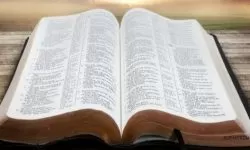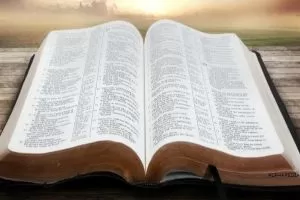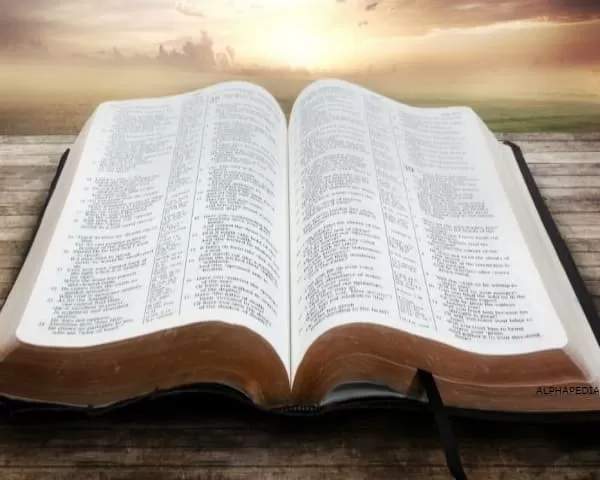The name Andrew is a Greek name meaning “manly” or “of value”. He was Jonah‘s son and Simon’s brother. He was born in Bethsaida, in the province of Galilee, and was a fisherman like his brother Peter. Before meeting Jesus, Andrew was a disciple of John the Baptist.
However, when John pointed to Jesus as the Lamb of God, he realized that Jesus was older and immediately left John, found his brother Peter, and became a disciple of Jesus (John 1: 25-42).
Andrew and his brother Peter continued to work on fishing and lived together in their house until Jesus asked them forever to be “fishers of men” (Mt. 4:18f). The Gospel of John is the source of almost all known information about Andres.
Andrew and his brother Simon Peter met Jesus at the same time, became his disciples and accompanied him. (Matthew 4:18). Andres’ name appears in the Bible among the 12 apostles of Jesus. (Matthew 10:2). Andres’ job was to fish with his brother Simon Peter in the Sea of Galilee.(John 1:44).
At first Andres and John were disciples of John the Baptist and witnessed when he claimed that the Lamb of God was Jesus, a historical moment. (John 1:35-36), After that they continued to accompany Jesus (verse 37).
Jesus noticed that Andrew and John were following Him and invited them to spend the day with Him (verses 38-39). After spending time with Jesus, Andrew became convinced that Jesus was the Messiah, and he took action: “Andrew, the brother of Simon Peter, was one of the two who heard what John had said and followed Jesus.
“We have found the Messiah,” was the expression he used when he went to look for Simon. (i.e. the Christ). And he brought him to Jesus” (verses 40-42). Therefore, Andrew was one of the first two followers of Jesus and the first to bring someone else to him.
Later, Jesus was walking by the Sea of Galilee when he encountered Andrew and Peter, busy throwing nets into the lake in search of fish. Jesus called to them, “Follow me, and I will make you fishers of men” (Matthew 4:19).
What the Bible Says
The Bible says that Andrew and Peter “immediately” followed Jesus, leaving their nets behind (verse 20). Andrew and Peter already knew who Jesus was, based on their contact with Him in John 1, and now, when He officially calls them to be disciples, they respond.
By leaving the family business behind, Andrew sets a good example for all who would follow Christ; we are all called to “seek first His kingdom and His righteousness” (Matthew 6:33), and we must not let anything stand in the way of following Jesus’ call.
When Jesus told Andrew and Peter that they would be “fishers of men,” He promised that He would use them to save the souls of men. And that is exactly what the apostles did. There is at least one instance in Andrew’s life, recorded in the Bible, where he was a “fisher of men. Some Greeks approached Philip, one of Andrew’s fellow disciples, who wanted to see Jesus (John 12: 20-21).
Philip told Andrew what the Greeks wanted, and together Andrew and Philip took the matter to Jesus (verse 22). In bringing the Greeks to Jesus, Andrew had faith that Jesus’ intention was to save all men, and he was right: Jesus responded by referring to His crucifixion, saying, “The hour has come for the Son of Man to be glorified” (John 12:23).
His death and resurrection would be the way in which all men, of all races, creeds, and families, would be saved. These are the “fish of every kind” from Jesus’ parable of the net (Matthew 13:47-50), and Andrew was one of the first to participate in an evangelical effort that extended beyond the Jewish people.
The incident with the curious Greeks anticipated the day when God would reveal to Peter, Andrew’s brother, that all people are welcome to come to Jesus (Acts 10: 1-48).
Related Topics

ECCLESIASTES 2

ECCLESIASTES 3

DEUTERONOMY 8

SUMMARY OF THE GENESIS OF THE BIBLE

DEUTERONOMY

LAMENTATIONS 4
Other Topics of Interest in ALPHAPEDIA

FREE INTERIOR DESIGN COURSE

FREE MASTER DEGREE IN OPHTHALMOLOGY

MEANING OF JOEL IN THE BIBLE

FREE PSYCHOTHERAPY COURSE

FREE LIGHTING COURSE

FREE TELECARE COURSE
Image of the Bible



